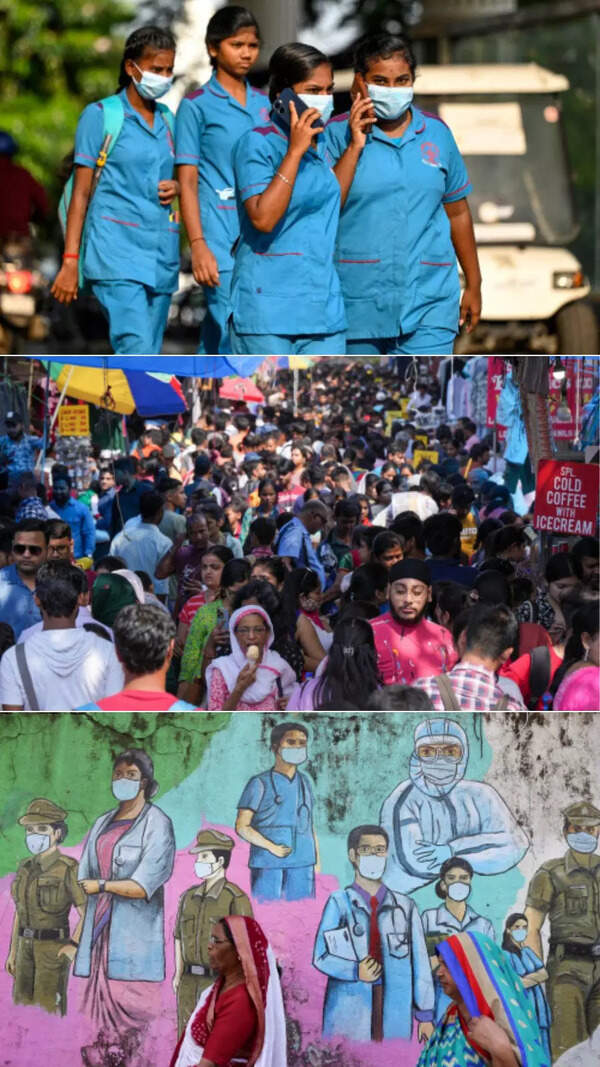- News
- India News
- Time in hospital won’t be part of police custody period: Supreme Court
Trending Topics
Time in hospital won’t be part of police custody period: Supreme Court

NEW DELHI: It has become very common nowadays that an accused after getting arrested becomes ill and gets hospitalised, and police custody expires during treatment, denying the cops an opportunity to interrogate him/her. But the Supreme Court on Monday said that police may get additional time to quiz accused to compensate for the time lost in treatment.
A bench of Justices M R Shah and C T Ravikumar said that no accused can be allowed to play with the investigation and/or the court’s process. It allowed a CBI plea seeking additional time to interrogate a coal-scam accused belonging to West Bengal, noting that the agency was given seven days’ custody but it could interrogate him only for two-and-half days as he was admitted to hospital and subsequently granted interim bail.
Additional solicitor general Aishwarya Bhati contended that the CBI could not exercise the police remand as allowed by the special judge due to hospitalisation of Vikas Mishra and therefore the CBI should be given police custody of the accused for the remaining period of the seven days.
The bench said, “. . . the respondent-accused has successfully avoided the full operation of the order of police custody granted by the learned special judge. . . No accused can be permitted to play with the investigation and/or the court’s process. No accused can be permitted to frustrate the judicial process by his conduct. It cannot be disputed that the right of custodial interrogation/investigation is also a very important right in favour of the investigating agency to unearth the truth, which the accused has purposely and successfully tried to frustrate. Therefore, by not permitting the CBI to have police custody interrogation for the remainder period of seven days, it will be giving a premium to an accused who has been successful in frustrating the judicial process. ”
Accepting CBI’s contention, the SC said, “The appellant-CBI is permitted to have police custody remand of the respondent for a period of four days. ”
A bench of Justices M R Shah and C T Ravikumar said that no accused can be allowed to play with the investigation and/or the court’s process. It allowed a CBI plea seeking additional time to interrogate a coal-scam accused belonging to West Bengal, noting that the agency was given seven days’ custody but it could interrogate him only for two-and-half days as he was admitted to hospital and subsequently granted interim bail.
Additional solicitor general Aishwarya Bhati contended that the CBI could not exercise the police remand as allowed by the special judge due to hospitalisation of Vikas Mishra and therefore the CBI should be given police custody of the accused for the remaining period of the seven days.
Times View
This is a welcome move which should dissuade those feigning illness to reduce the period of interrogation.
The bench said, “. . . the respondent-accused has successfully avoided the full operation of the order of police custody granted by the learned special judge. . . No accused can be permitted to play with the investigation and/or the court’s process. No accused can be permitted to frustrate the judicial process by his conduct. It cannot be disputed that the right of custodial interrogation/investigation is also a very important right in favour of the investigating agency to unearth the truth, which the accused has purposely and successfully tried to frustrate. Therefore, by not permitting the CBI to have police custody interrogation for the remainder period of seven days, it will be giving a premium to an accused who has been successful in frustrating the judicial process. ”
Accepting CBI’s contention, the SC said, “The appellant-CBI is permitted to have police custody remand of the respondent for a period of four days. ”
Start a Conversation
FOLLOW US ON SOCIAL MEDIA
FacebookTwitterInstagramKOO APPYOUTUBE










